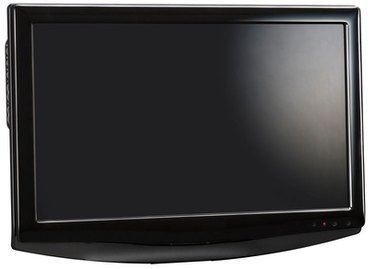
Transporting or storing an LCD television can be difficult due to concerns associated with the screen cracking or becoming distorted when laid flat. Although it can be done, care should be taken.
Plasma vs. LCD
Video of the Day
Plasma screens should never be laid flat, but because LCD screens are made of different materials, they can be laid flat on their backs for short periods of time without serious concern. This can often cause confusion for those unfamiliar with the differences between plasma and LCD TVs.
Video of the Day
The Danger of Laying Large LCD TVs Flat
Large LCD TVs are designed so their weight is balanced when the set is upright, as it is when mounted to a wall. When a large LCD set is laid flat, there is very little support for the middle part of the screen. It is possible that the screen could become cracked or distorted around the edges if it lays static for a prolonged period of time.
Transporting an LCD TV
Concerns of laying an LCD TV flat are exacerbated with the addition of the bumps and vibrations it is subject to during transport. For this reason, it is best to hire professionals or rent a truck to move large LCD TVs, as these provide the vehicle capacity necessary to keep them upright throughout the trip.